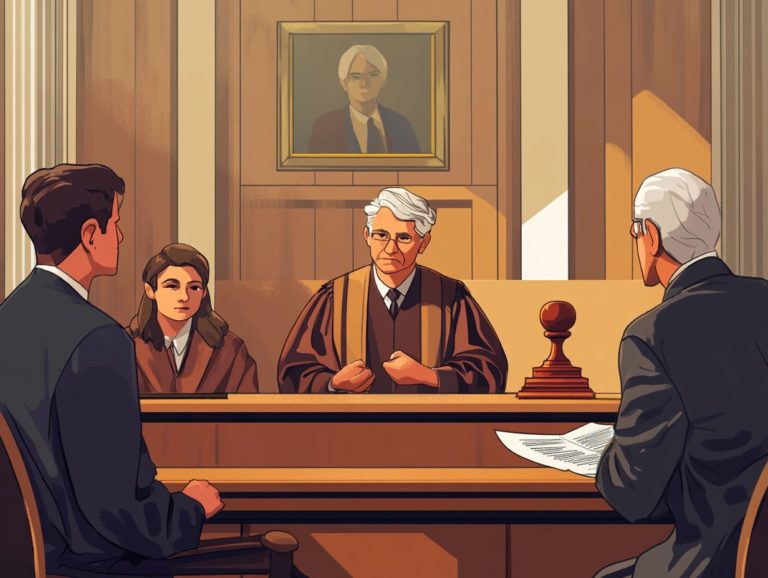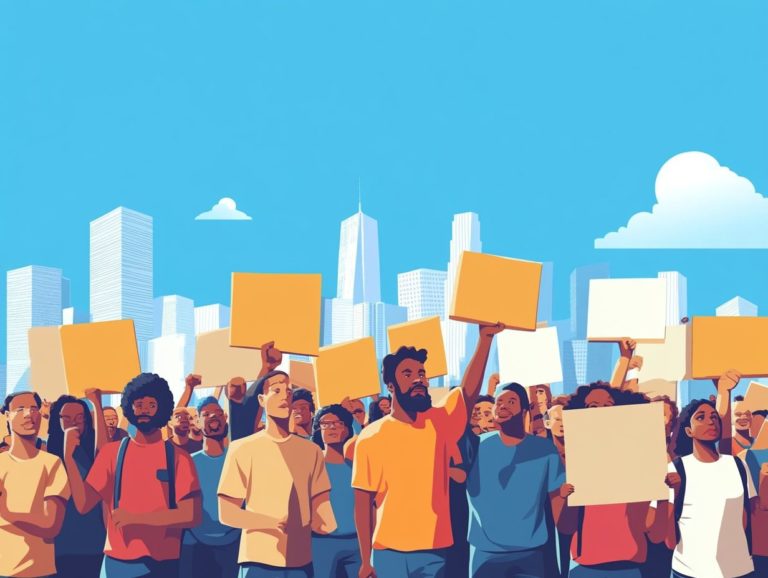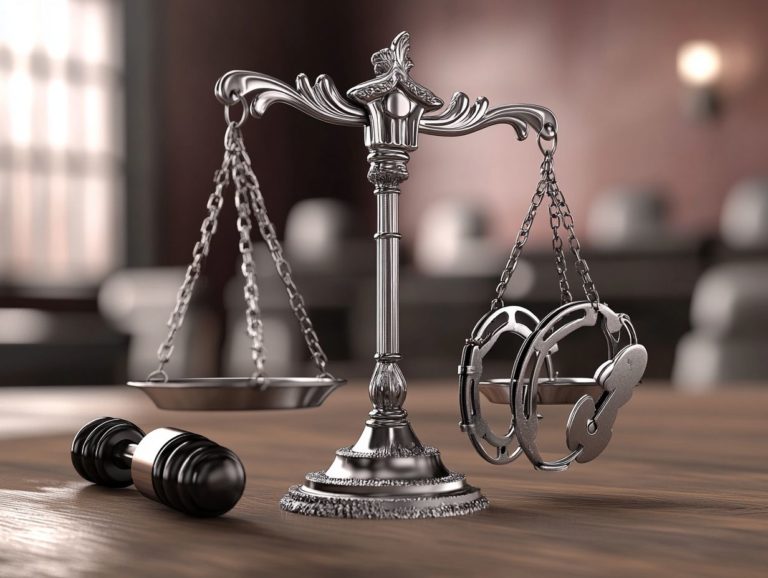How to Access Legal Resources for Rights
Navigating the legal landscape can feel overwhelming, especially when it comes to understanding your rights. Whether you’re tackling a personal issue or seeking guidance on a complex situation, knowing how to access the right legal resources is essential.
This article will break down the various types of legal rights, helping you identify your specific legal needs while guiding you through both free and paid resources available to you.
From government agencies to non-profits and private firms, you ll discover how to effectively utilize these resources, including legal aid and pro bono services, which are free legal services provided by lawyers.
Prepare to empower yourself with the knowledge you need to navigate your legal journey confidently!
Contents
Key Takeaways:
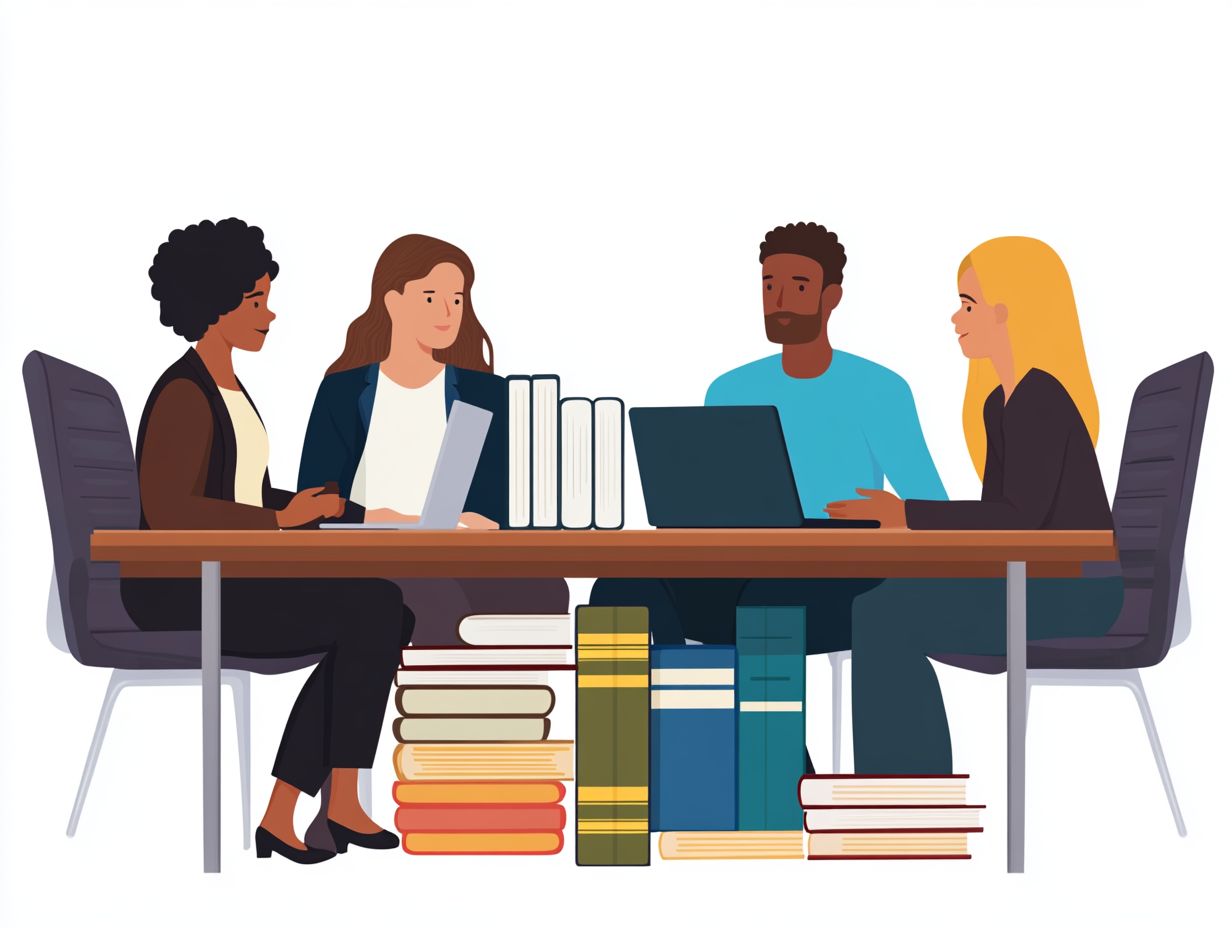
- Know your rights by understanding the different types of legal rights available to you.
- Identify your legal needs by assessing your situation and determining the resources you may need.
- Utilize various types of legal resources, such as government websites, non-profit organizations, and private law firms, to find the support you need.
Identifying Your Legal Needs
Identifying your legal needs is the crucial first step in dealing with legal challenges that low-income individuals frequently encounter. This is especially true when faced with complex legal issues such as civil litigation or housing assistance.
By seeking appropriate legal advice, you can discern whether you require legal representation or if you can effectively address your concerns through available online resources or local legal clinics.
Understanding Your Rights
Understanding your legal rights is crucial, particularly if you re a low-income individual facing challenges like domestic violence, eviction proceedings, or family law matters. This knowledge equips you to seek the legal assistance you need, often accessible through pro bono services and community organizations. This allows you to protect your rights effectively.
Being familiar with these rights can make a substantial difference when navigating complex situations, whether it s obtaining protective orders or understanding tenant rights during eviction processes.
Types of Legal Rights
Legal rights encompass a wide array of crucial aspects, including family law rights related to child custody, tenant rights concerning eviction and housing, and access to government benefits for low-income individuals. These rights serve as the pillars of fairness and justice within society.
For instance, family law rights empower a parent to seek custody or visitation rights, ensuring that the best interests of children are prioritized during disputes.
Tenant rights safeguard individuals from wrongful eviction or inadequate living conditions, granting them the ability to challenge improper landlord actions through legal means.
Eligibility for government benefits, such as food assistance and housing vouchers, is a fundamental legal right that can profoundly affect the quality of life for low-income individuals and families.
By grasping these legal rights, you can more effectively navigate potential challenges and assert your entitlements.
Assessing Your Situation
Assessing your situation means taking a close look at your specific legal needs, particularly if you require urgent assistance with pressing matters like domestic violence or eviction proceedings.
To effectively navigate these complexities, begin by asking yourself critical questions about your circumstances: Are you facing threats that necessitate immediate protective measures? Do you need assistance in understanding the legal processes related to eviction notices?
Identifying potential resources is also vital consider legal aid organizations or community services that can offer valuable guidance. Focus on key areas, such as documenting incidents, identifying potential witnesses, or collecting any evidence that supports your claims.
Ultimately, being proactive in addressing these issues gives you the power to make more informed decisions and achieve better outcomes.
Conclusion
Empower yourself today! Explore your legal rights and take the first step toward justice.
Types of Legal Resources Available
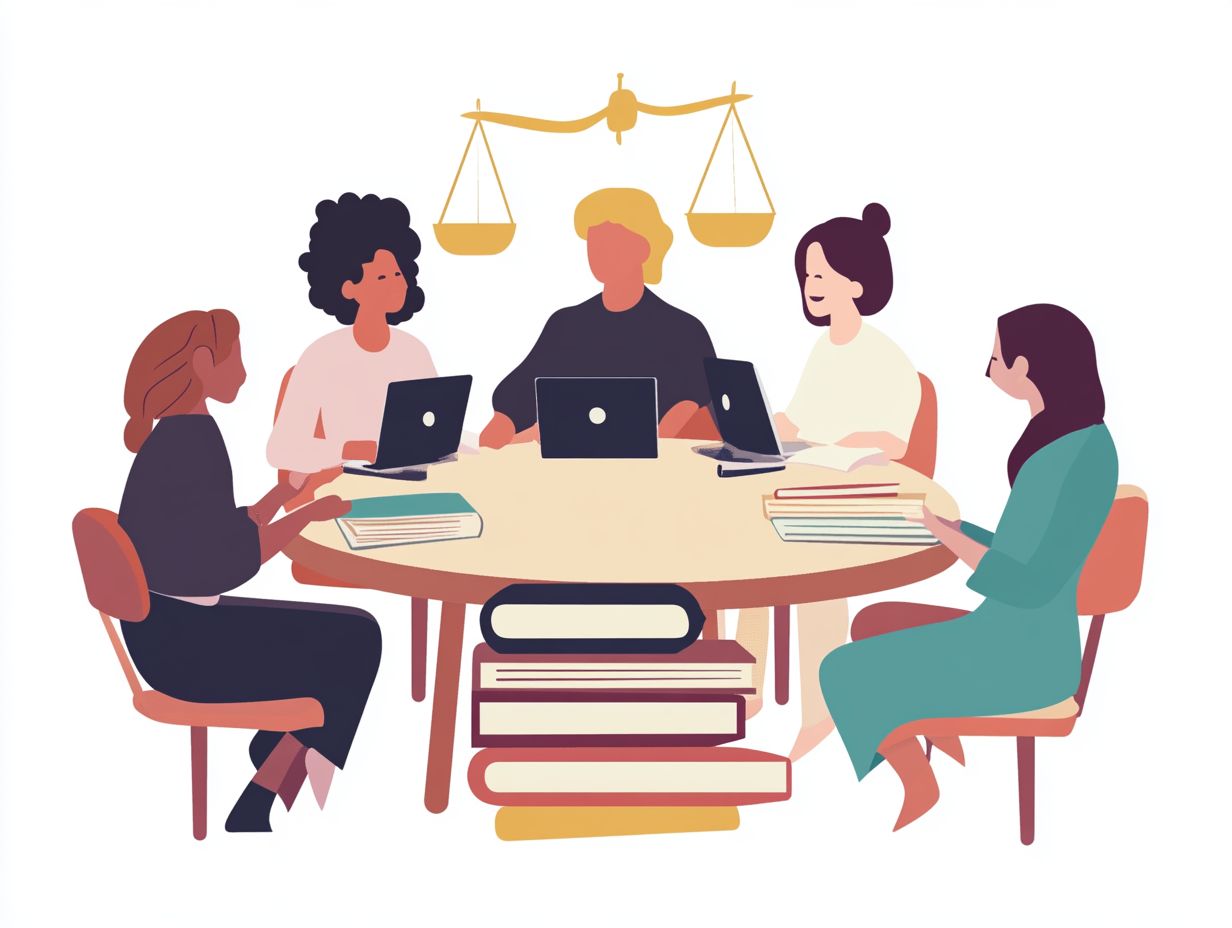
You have a wealth of legal resources at your fingertips to help address your civil legal needs, especially if you’re navigating financial constraints.
Options such as legal clinics, comprehensive online resources, and LSC-funded programs provide valuable free or low-cost legal assistance. Tapping into these resources is essential for obtaining the legal support you deserve and gaining a clear understanding of your rights in crucial areas like housing, family law, and public benefits.
Free vs Paid Resources
Legal resources fall into two main categories: free resources, like legal aid organizations and pro bono services, and paid resources, which encompass private law firms that charge for their expertise.
Each type presents its unique advantages and disadvantages that can significantly influence your legal journey. Free resources often grant you access to basic legal guidance and support, helping you navigate the complexities of the legal system without the burden of fees.
Organizations such as Legal Services Corporation and local bar associations are available to assist low-income individuals with essential legal matters, though they may come with limitations based on income or the complexity of your case.
Conversely, while paid resources can be expensive, they offer a more comprehensive range of services and personalized attention. This makes them particularly valuable for intricate legal situations that require specialized expertise, ultimately ensuring the best possible outcomes for clients like you.
Online vs In-Person Resources
In today s digital landscape, you have the luxury of accessing both online and in-person legal resources, from virtual legal clinics to traditional ones that offer essential legal information and assistance. This dual availability presents a unique blend of advantages and challenges, especially in how these resources meet your diverse needs.
Online platforms provide unmatched convenience. Think of legal databases and websites like LegalZoom or Rocket Lawyer that let you navigate legal documents and receive professional guidance all from the comfort of your home.
While these tools can be incredibly useful, they often lack the personal touch and customized advice that come from face-to-face interactions at local law offices or community clinics. Not everyone has reliable internet access, which can limit the effectiveness of online resources.
Therefore, combining both methods leveraging online tools as supplements to in-person consultations often leads to the most favorable outcomes for those seeking legal assistance.
Finding Legal Resources
Navigating complex legal issues can be daunting, especially for low-income individuals. It’s essential to identify reliable legal resources that can offer guidance and support.
Fortunately, various avenues are available to you, including government websites, agencies, and community organizations dedicated to assisting those in need.
Government Websites and Agencies
Government websites and agencies are valuable legal resources, offering a wealth of information and assistance across various issues, including those concerning the Federal Emergency Management Agency and Veterans Affairs. These platforms act as essential hubs for individuals seeking guidance on legal matters, especially during times of crisis or need.
For instance, the U.S. Department of Justice provides an array of resources, including legal advice for crime victims and crucial information on civil rights. The Administration on Aging focuses specifically on elder law, ensuring that older citizens are well-informed about their rights.
Each of these agencies, along with others like the Equal Employment Opportunity Commission and the Social Security Administration, is dedicated to empowering you with comprehensive legal assistance and relevant information tailored to your diverse needs.
Non-Profit Organizations
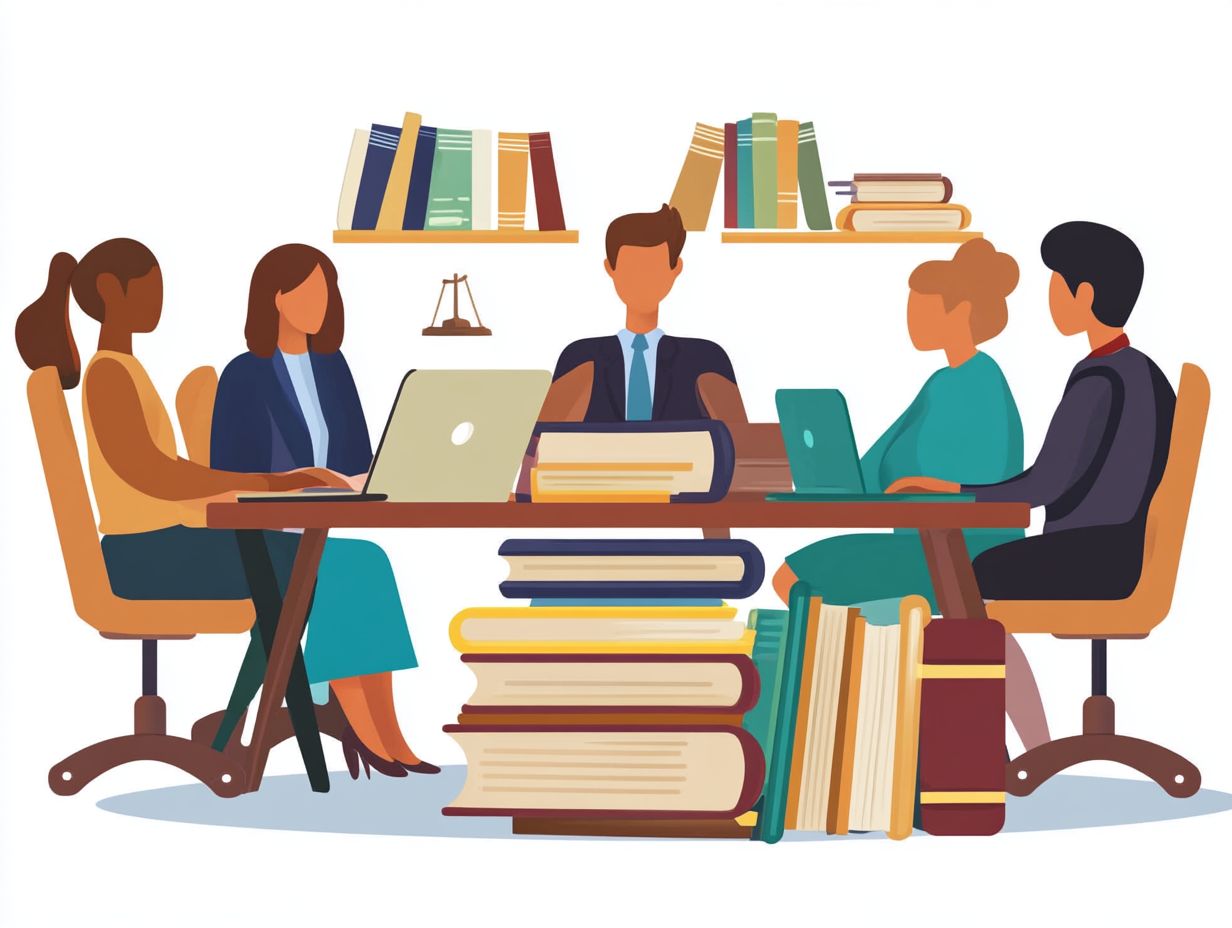
Non-profit organizations play an essential role in providing legal assistance and support to individuals with low income. They often hone their expertise in areas such as housing, family law, and civil rights advocacy.
These organizations serve as a vital bridge in the legal services landscape. They ensure that marginalized communities have access to critical resources and representation.
Take, for instance, the Legal Aid Society. It is dedicated to making legal assistance available for housing disputes and domestic violence cases. Meanwhile, the American Civil Liberties Union (ACLU) stands firm in championing civil rights, actively fighting against discrimination and injustice.
The Pro Bono Institute encourages attorneys to volunteer their skills. This significantly amplifies the impact of legal aid programs.
Through their diverse initiatives, these entities not only empower individuals but also contribute to fostering a more equitable legal system for everyone.
Private Law Firms
Private law firms provide legal representation and services for a variety of legal issues. However, the fees can often pose a significant barrier for low-income individuals seeking assistance.
Many of these firms are becoming increasingly aware of the challenges faced by underserved communities. They re taking steps to introduce flexible options that make legal expertise more accessible to you.
These options include:
- Sliding scale fees, where the cost of services is adjusted based on your income.
- Customized payment plans that allow you to pay in installments over time.
By integrating such alternatives, private law firms are playing a vital role in bridging the gap between essential legal representation and the financial realities that many low-income individuals encounter.
Making the Most of Legal Resources
To fully harness the potential of legal resources, it s crucial to understand how to make the most of the tools available to you!
This includes seeking legal advice, accessing pertinent legal information, or engaging with community organizations that can provide valuable support.
Tips for Effective Use
To make the most of legal resources, you should prepare relevant documents and understand your legal rights. Actively seek legal advice tailored to your unique situation.
This preparation means gathering essential information, including personal details, timelines, and any correspondence related to your legal issue. It s equally vital to familiarize yourself with legal terminology, as this can significantly enhance your interactions with professionals and improve your understanding of applicable laws.
Utilizing available online resources for document assembly can save you both time and money. Various platforms provide templates and guides, simplifying the process of drafting contracts, agreements, or motions.
Engaging with community resources, such as legal aid organizations or workshops, can boost your understanding and confidence as you navigate legal processes.
Legal Aid and Free Legal Services
Legal aid and free legal services provided by volunteer lawyers serve as essential lifelines for low-income individuals grappling with critical legal challenges.
These programs offer legal representation and assistance, expertly crafted to bridge the justice gap and ensure that everyone has access to the support they need.
Who Can Get Help and How to Apply
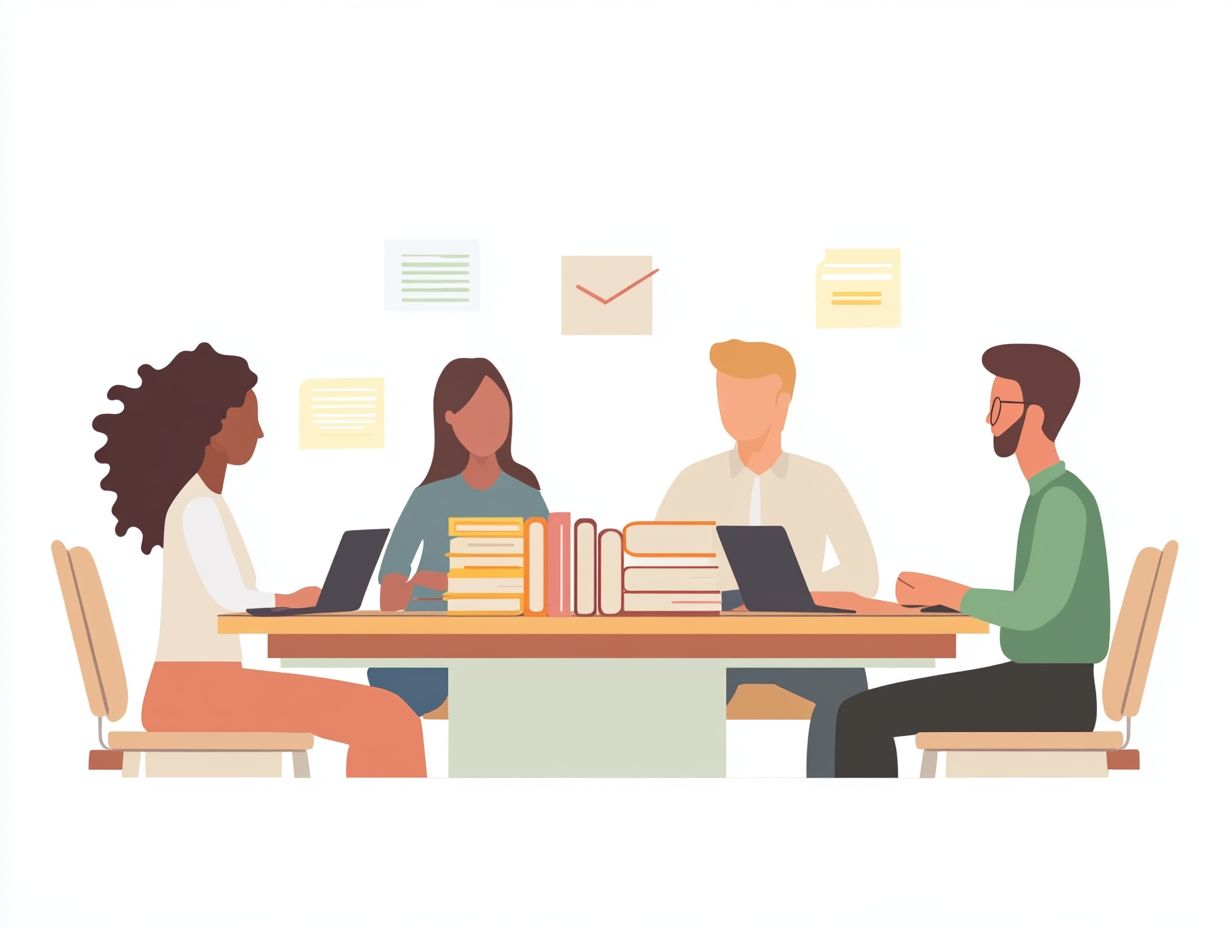
Eligibility for free legal help often depends on your income and specific legal issues. Understanding this is key for you!
Legal aid organizations set income limits based on the federal poverty level. If your income is below this threshold, you may qualify for assistance. Certain cases, especially those involving domestic violence, housing disputes, or public benefits, are prioritized.
When seeking help, familiarize yourself with the application processes. Organizations like the Legal Services Corporation (LSC) have structured programs that require detailed forms and sometimes interviews to assess your needs.
Each program has unique requirements, so carefully review the guidelines specific to your area.
Common Questions About Legal Help
What is the purpose of legal resources for rights?
Legal resources are tools and information to help individuals understand and enforce their rights under the law, including how to use legal aid to know your rights.
Who can access legal resources for rights?
These resources are available to everyone, regardless of age, gender, race, or socioeconomic status. They are meant to be accessible to all individuals seeking to educate themselves on legal rights and protect their legal rights.
What types of legal resources are available for rights?
Various types include legal aid clinics, online legal databases, legal aid societies, and community legal education programs. They provide valuable information, guidance, and support.
How can I access online legal resources for rights?
Many online resources, such as legal websites, blogs, and forums, provide valuable information and articles to help you understand and enforce your legal rights. Many legal organizations and law firms also offer free resources online.
What should I do if I cannot afford a lawyer?
If you can t afford a lawyer, you can still access free legal help. Many legal aid clinics and societies provide free or low-cost services. You can also research legal information online to educate yourself on your rights and options.
Can I use legal resources for rights in court?
Yes, you can use legal resources in court. They can help you understand and prepare for your case, and may provide legal representation if you can t afford a lawyer. However, it’s important to consult a lawyer for personalized legal advice.



